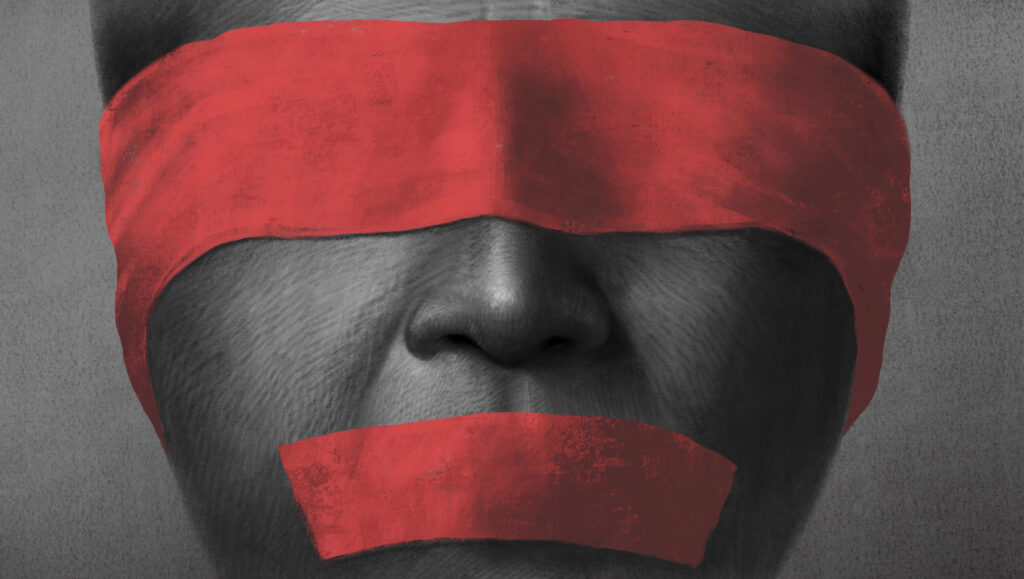To quote Scott Adams, the creator of the Dilbert cartoon series: “Everyone is someone else’s weirdo”. We all have something that is an intrinsic part of us that may lead us to be judged by others. When we are creating that judgement it often says more about ourselves than the other person.
As we approach Anti-Bullying week in November we are reminded of the need for psychological safety and our ability to ’bring our whole selves to work‘, which is often easier said than done when we have multiple and intersectional layers to our identities.
Rebel Wilson and Philip Scofield are just two examples where the potential reveal of their sexual orientation prompted them to out themselves first to claim their own narrative
Fear and shame keep us silent
It is said that one of our greatest fears is that of being humiliated or shamed – because of this we often cover or mask a part of our identity, be that our sexuality, gender identity, parenthood, loss or grief, poor mental health, neurodiversity, dyslexia, ethnicity or faith in order to prevent ourselves being judged or seen in a less favourable light whether this is in our family, society or business environment.
When we start to hide these important elements of who we are then our ability to thrive and be our authentic selves is limited, we also live with the thought that one day we might be ‘outed’ and be put on the spot to explain ourselves, be judged, feel we don’t belong and people may think less of us.
In the public interest
Over recent times we have seen the media feel they have the right, justified by the phrase ‘in the public interest’ to intrude in people’s lives to create sensationalised stories or blackmail celebrities to come clean sooner rather than later – Rebel Wilson and Philip Scofield are just two examples where the potential reveal of their sexual orientation prompted them to out themselves first to claim their own narrative and story.
Most of us are not celebrities, we live our day-to-day lives that are largely of no significant interest to the wider world, yet we often still have that identity that we would rather wasn’t ’out there’. We carry this shame with us, watching our language and covering up so we are not discovered. Many fear being outed – what if people don’t like me, what if it is perceived as less capable, what if I am seen as a risk, what if I lose my family or friends, my job, what if I lose my family or friends, my job, my partner, or my reputation?
Build a network of trusted allies to support you and allow you space to explore what ‘being out’ might look like and see if it would work for you
As well as the vulnerability it places on us and the potential for blackmail it also significantly impacts our mental health, which will grow and fester if not addressed in time. So here are some of my suggestions that may work for you if you feel you might be outed:
- Seek a mentor or someone who you can confide in – talk through your fears, and the barriers and understand what is holding you back from sharing
- If being ‘in’ rather than ‘out’ is where you want to be, then accept yourself – after all, it is your choice to present yourself to the world as you wish, and this doesn’t make you less authentic
- Change the environment in which you live and work – find a space where you will be accepted for who you are and build the confidence to live that life
- Build a network of trusted allies to support you and allow you space to explore what ‘being out’ might look like and see if it would work for you
Suggested tips for allyship
- Never betray someone’s trust in you and share their story and out them without their explicit permission – you may think you are helping but often this can have unintended outcomes
- If you find out what seems like a secret about someone, exercise good judgement as to whether you let on to the person you know – this may be devastating for this person to know that someone knows. Certainly never share this with anyone else, even if you are trying to corroborate an inkling
- Remember that something you believe is minor or innocent may be a huge barrier to someone. Do not minimise, invalidate, or undermine someone else’s lived experience through your own lens or privilege
It is never ok to out someone, treat people with dignity and respect or it may well be you that is being judged negatively or outed.
Suggested tips for organisations wanting to ensure ‘outting’ doesn’t happen
- Ensure there are robust anti-bullying and harassment policies in place – everyone is aware of the risks of outing people against their explicit consent
- Sign-post Mental Health first aiders and Employee Assistance Programme resources so colleagues have somewhere to go if they want to support or counselling services
- Promote the establishment of staff networks or employee resource groups to allow colleagues to come together in a safe space to support each other
- Destigmatise and normalise a wide spectrum of identities through awareness campaigns, training, lunch and learns or through lived experience talks. Start the conversations so others will feel empowered to share theirs
It is never ok to out someone, treat people with dignity and respect or it may well be you that is being judged negatively or outed.
Interested in this topic? Read Gender identity is still lacking in the workplace.
[cm_form form_id=’cm_65a14c3f5da64′]






